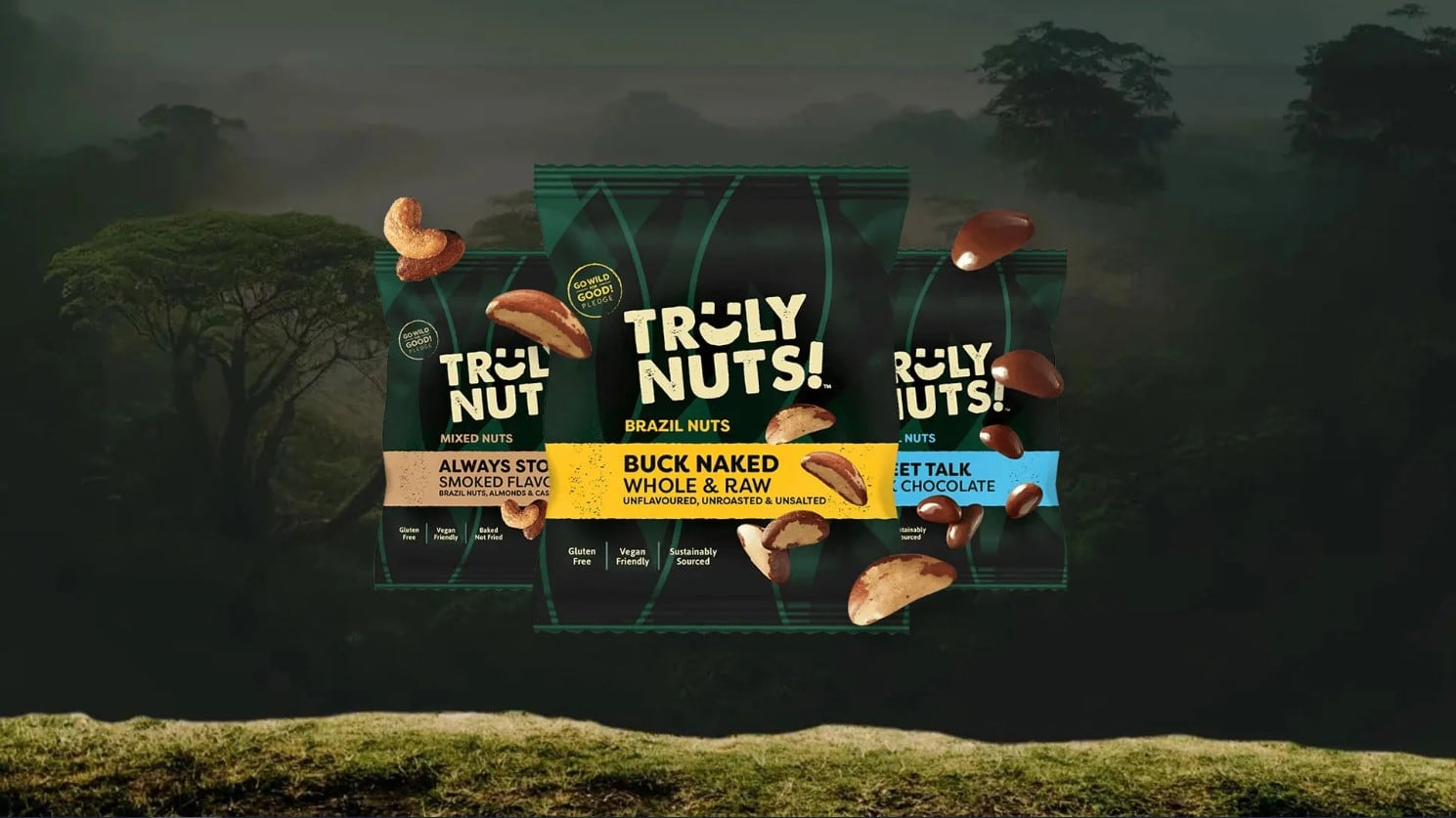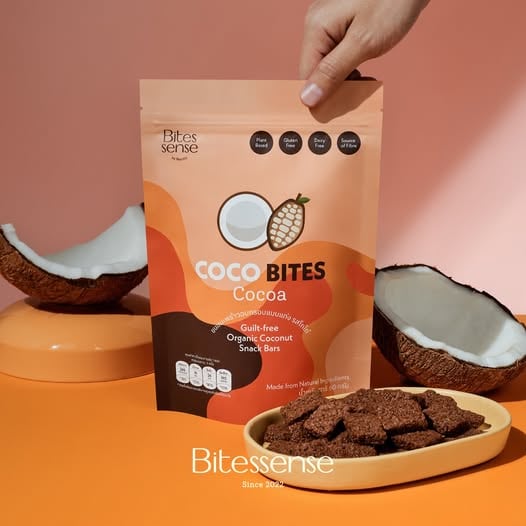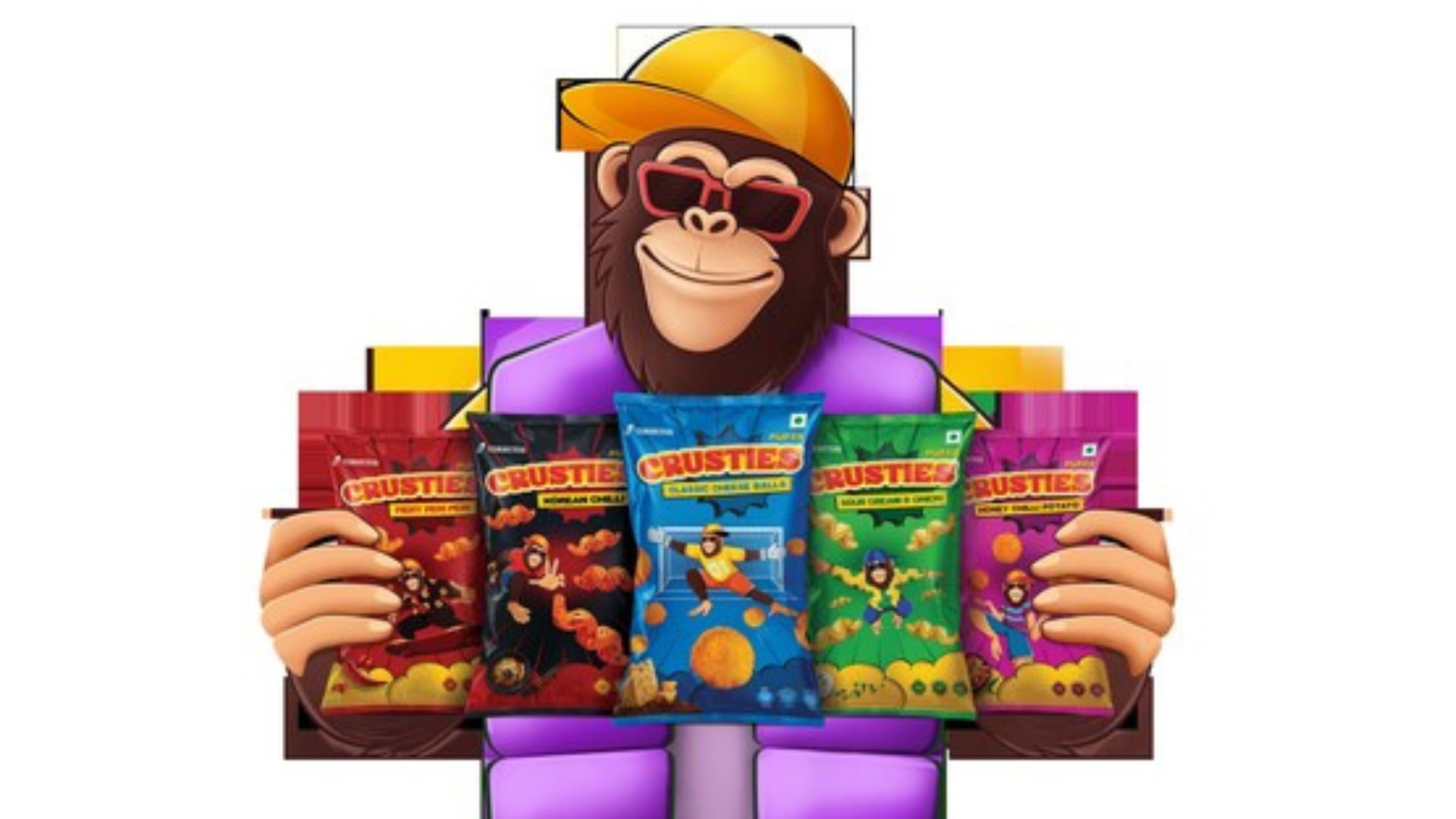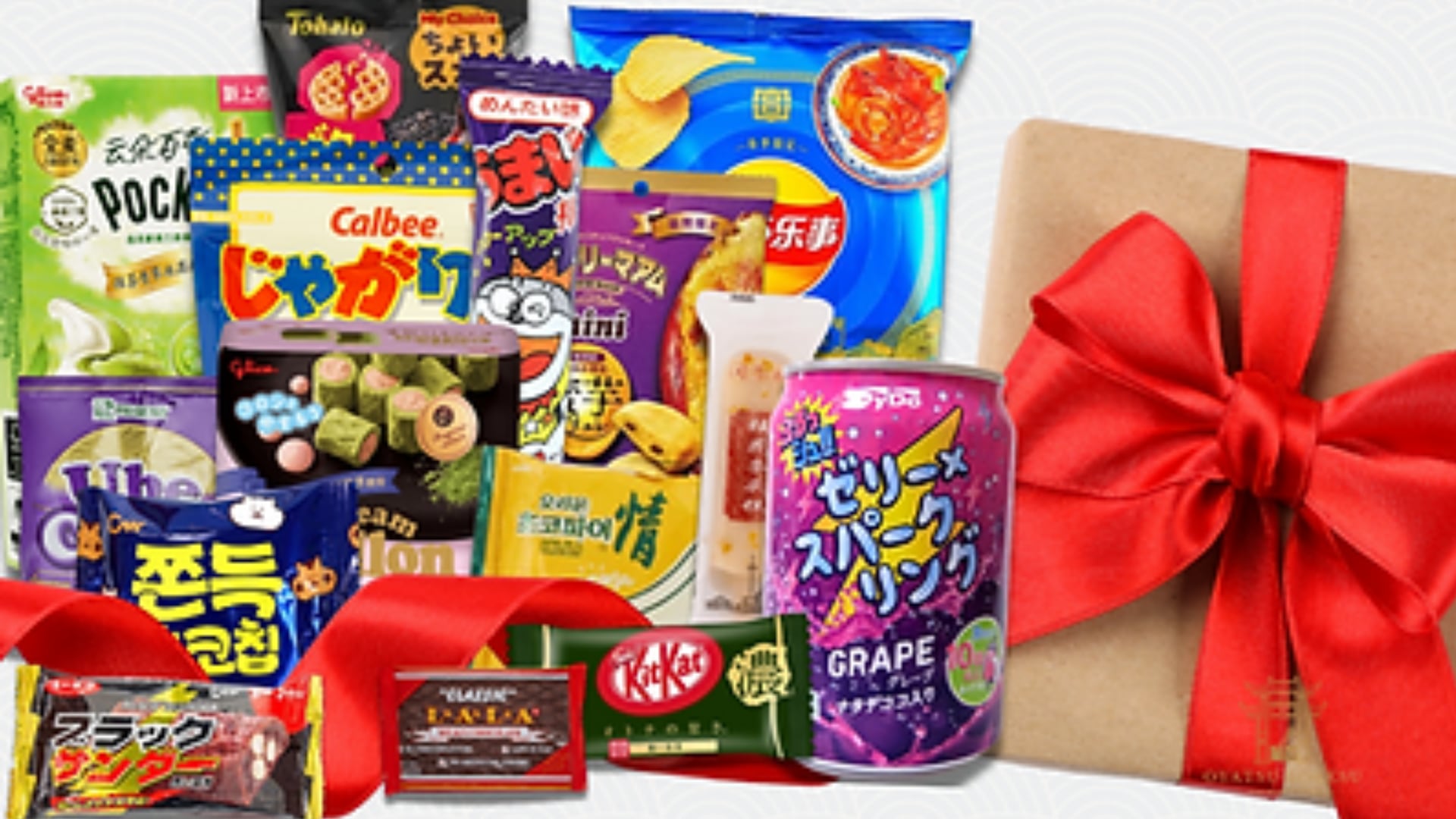We speak to Truly Nuts!, retail arm of global agri-tech firm White Lion, about its plans to expand globally with sustainably harvested Brazil nuts starting in Asia and the UK.
The firm’s strategy hinges on offering better-for-you snacks – catering to time-strapped consumers whether commuting or travelling.
Truly Nuts! aims to move consumers away from ultra-processed snacks by offering real, whole foods made with Brazil nuts, which are lower in sugar and rich in nutrients like selenium and antioxidants.
The brand has built its presence in airports, train stations, and motorway stops – places where healthy snacks are often hard to find, said co-founder and CEO Gareth Lloyd.
“In the UK, we’ve really focused on the travel sector. We’re in airports, railway stations, and motorway service areas. And that’s where people often struggle the most to find something healthy to eat while on the go,” Lloyd shared.
“We’re seeing both men and women choose healthier options, and they’re increasingly picking up our products over other grab-and-go snacks. As a convenient, on-the-go option, our snacks are doing really well and gaining popularity.”
Truly Nuts! has also found traction in Singapore – the first Asian market to stock its products in major supermarkets and online platforms. Lloyd attributes this success in part to rising demand for functional, nutrient-dense snacks.
Brazil nuts and their benefits
Packed with healthy fats, antioxidants, and minerals, Brazil nuts are a sustainable source of functional food that have the potential to combat various diseases such as obesity and hypertension.
There is a study trial that observed the fat reduction effects of Brazil nuts on overweight women, and a scientific review that analysed the nutritional profile of Brazil nuts.
Additionally, Brazil nuts are versatile. They can be flavoured or simply eaten on its own.
The firm offers five core flavours in Singapore. The chilli mix and smoked mix, both contain Brazil nuts, almonds, and cashews; as well as the “Buck Naked” whole and raw Brazil nuts.
The dark and milk chocolate flavours are currently available in both Singapore and the UK.
Lloyd said the raw Buck Naked range is particularly popular in Singapore due to the rarity of fresh Brazil nuts in the region.
The unique story of Brazil nuts
By sourcing directly from the Amazon and ensuring freshness, the brand has carved a unique positioning in the Asian market.
“I think that’s because it’s hard to find a high-quality, fresh Brazil nut here. Let’s be frank – the Amazon rainforest is a long way from Singapore. The fact that we’re harvesting and packaging them right there in the Amazon and delivering them fresh to Singapore really appeals to consumers,” Lloyd said.
Furthermore, the exotic origins of Brazil nuts draws consumers, who can play a part in preserving the Amazonian rainforests and its communities.
Why Brazil nuts are special
Lloyd explained that Brazil nut trees are ecologically unique in that they can only grow and produce fruit in untouched, virgin rainforest. Attempts to cultivate them in plantation-style farming systems have failed, as the trees depend on a complex ecosystem found only in the Amazon.
He noted that if the surrounding rainforest is cleared, Brazil nut trees stop producing nuts and eventually die. This ecological dependence makes the Brazil nut tree a powerful tool for conservation – its commercial value gives local communities a strong reason to protect rather than deforest the Amazon.
This underscores the product’s uniqueness and its potential role in supporting both livelihoods and environmental sustainability.
However, preserving the natural habitats of Brazil nuts brings up the costs significantly.
“Our Brazil nuts are sustainably wild-harvested, and that comes with significant costs. We’re collecting from a large area, and everything is harvested by hand. We pay local people to do this. There are no machines running through the jungle; it’s a manual process, and as we all know, machines are cheaper to run than people,” said Lloyd.
He acknowledged the reality that while consumers might say they are willing to pay more for sustainable food, it does not necessarily translate into action.
“Consumers want to support sustainable brands, but they’re still very cost-conscious. When people are shopping, they make decisions in seconds – they’re not stopping to evaluate which brand gives back more to the planet.
“That’s why we aim to get our product into as many kitchens as possible. Once people are eating our snacks – whether at home or in a taxi – they’ll have the chance to read our packaging, learn our story, and engage with our mission. That’s how we build a long-term connection and a loyal, sustainability-minded consumer base,” said Lloyd.
A key strategy for winning over consumers would be taste – that is where the flavours and market understanding are crucial.
Tailoring to global palates
Lloyd also spoke about the regional differences in taste preferences.
“In the UK, milk chocolate is more popular, while in Singapore, people prefer dark chocolate,” Lloyd explained. “Singaporeans are more health-conscious and lean toward less sugary options.”
“People will always eat chocolate. So if we can give them something that satisfies that craving but with significantly less sugar – about two-thirds less than a typical chocolate bar – and added nutritional benefits like selenium and antioxidants from Brazil nuts, then that’s a win.”
Expansion plans
Truly Nuts! also sees strong potential in the Middle East, where nut consumption is culturally entrenched, and the brand has completed initial product testing.
Additionally, White Lion Foods recently secured a 180-tonne Brazil nut shipment to China – according to Lloyd, this is the largest shipment to date for the firm.
He noted that Chinese consumers, like others globally, are becoming more health-conscious and increasingly scrutinise ingredient labels, using tools like Google or ChatGPT to assess product health claims.
This shift aligns with the firm’s mission to offer whole-food snacks.
The company has already launched its Amazon store in the U.S. and plans a wider rollout there in Q4, with China targeted for Q3 and the Middle East in the first half of next year.





